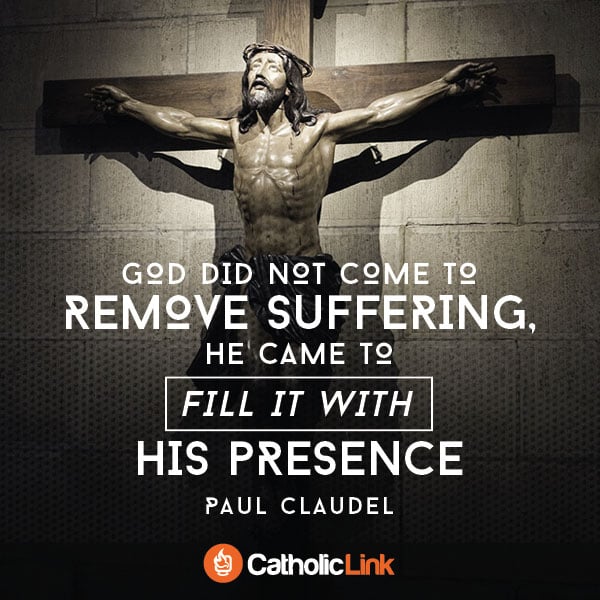Today I would like to share one of my favorite videos from the OBS page. It is a beautiful video with an important and timely message for our time: suffering is the path to knowledge of God. It’s hard to imagine a more irritating phrase for today’s culture. Can it possibly be true? How can suffering lead us to God?
The question of suffering leads us to the question of our existence: What is it all about? What’s the point of life? Can I truly be happy in a world such as this? Is there an answer to be found?
For now I will avoid trying to give any theoretical response to this question. In fact, sometimes when we try to respond to the question “Why does suffering exist?”, we end up confusing the situation rather than making it clear. Without denying the existence of convincing rational arguments, I have always tended to think that the best response is reality itself. Go talk to someone that has suffered and ask them how it has changed their life.
Father John Nepil Experiences Suffering On His Path To Knowledge Of God
In my experience, suffering is a type of catalyst. It shakes things up and brings things to their exploding point. When confronted with a radical situation, the person is forced to make a radical and deep decision on how they will continue to live their life. Thus, you find people who have not been able to find much purpose in life and fallen into a sort of melancholic abyss of meaninglessness or depression. Or, you find people who have been deeply changed (for the better) by the experiences of pain and fragility that forced them to search for those more consistent and transcendent truths. Suffering for them becomes an explicit manifestation of the contingency of the things of this world and, thus, it is transformed into a type of window that opens up towards something or someone eternal and infinite. It is in that moment that they realize where true happiness lies and how they must orient their lives according to it, leaving behind the superficial “medications” that they relied upon so heavily beforehand.
This is a very challenging path, but one that we must all walk in one way or another. As Christians, we must learn that this path of suffering has existed since the first fall of Adam and Eve; however, with Christ’s death and resurrection, it has undergone a serious makeover. Suffering has been clothed with meaning. It has become a means of holiness, a means of drawing closer to the Crucified Lord, and an apostolic means of serving others.
With regards to this subject, I would recommend John Paul II’s Salvifici Doloris.
Suffering is certainly part of the mystery of man. Perhaps suffering is not wrapped up as much as man is by this mystery, which is an especially impenetrable one. The Second Vatican Council expressed this truth that “…only in the mystery of the Incarnate Word does the mystery of man take on light. In fact…, Christ, the final Adam, by the revelation of the mystery of the Father and his love, fully reveals man to himself and makes his supreme calling clear” (100). If these words refer to everything that concerns the mystery of man, then they certainly refer in a very special way to human suffering. Precisely at this point the “revealing of man to himself and making his supreme vocation clear” is particularly indispensable. It also happens as experience proves—that this can be particularly dramatic. But when it is completely accomplished and becomes the light of human life, it is particularly blessed. “Through Christ and in Christ, the riddles of sorrow and death grow meaningful.”




















